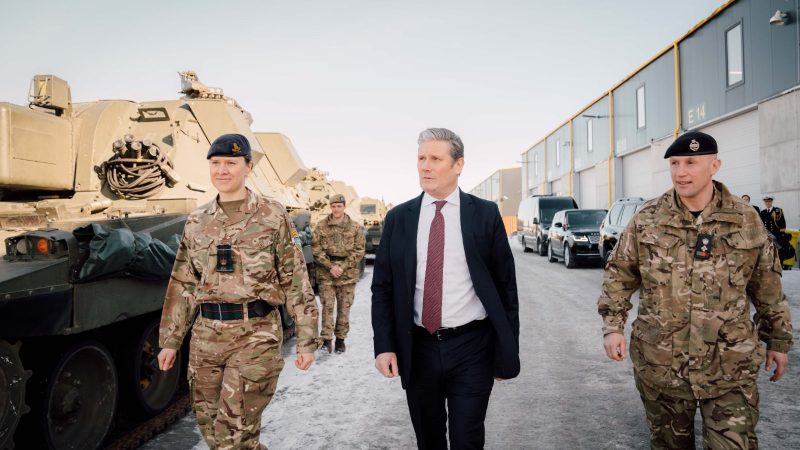
Russian missiles have hit a base just 15 miles from the Polish border, killing at least 35 people and injuring 134 more. Britain said this represented a “significant escalation”, while the US warned that any fire on a neighbouring NATO country would prompt a full-force response. President Zelensky has repeated his pleas for NATO to impose a no-fly zone and said if the alliance continues to resist the demand “it is only a matter of time before Russian rockets fall on your territory”.
In the UK, the focus is on two things: Evgeny Lebedev and Ukrainian refugees. On the first, Labour has called for an inquiry, but insiders suspect the story is getting little cut-through. On the second, there has been a development: we now know more about the government’s ‘Homes for Ukraine’ scheme. Under the programme, those offering accommodation to named refugees – no family link needed – will receive £350 a month. Keir Starmer has told The Times that he would welcome a Ukrainian refugee into his home. Michael Gove, the minister responsible for the sponsorship route, said yesterday: “Yes. Without going into my personal circumstances, there are things I’d need to sort out, but yes.” The scheme has been criticised by the Refugee Council, however, who highlight that it “falls short of enabling any Ukrainian” to come to the UK. Labour’s Lisa Nandy similarly said: “If Brits will need to have a prior connection to a Ukrainian family to sponsor them, as is suggested, that would be a severe limitation.”
Much like the pandemic, Labour believes that the war in Ukraine calls for expressions of unity with the government and phrases such as “in the national interest”. Once again, it is difficult for Keir Starmer to set himself apart from the Tories leading the country, and instead the Labour leader has often opted to focus on reshaping his party’s image by differentiating his position from that of Corbynite MPs. Where there are dividing lines – for example, Labour is in favour of all Ukrainian refugees being able to come to the UK, rather than just sponsored ones and those with family ties – they are carefully drawn. Starmer has said the number of refugees “shouldn’t be capped” but the opposition will not support the idea of following the EU in waiving visas altogether.
It was a little surprising that Starmer went on the cost of living at Prime Minister’s Questions last week, despite Home Office chaos providing lots of ammunition for criticism. But the decision made sense: energy bills, an urgent and universal topic at home, are better-suited to a political row. The choice of subject matter turned out to be tricky, however, as a confident Boris Johnson simply batted away concerns with old but effective attack lines, and claimed that Labour simply wanted the government to withdraw the measures it had announced. After it was reported that Starmer had dropped his call for Johnson to resign, the Labour leader confirmed yesterday: “I haven’t changed my mind on Boris Johnson. I think he’s lost the moral authority to lead. I don’t think he’s fit to be our Prime Minister.” Yet gaining political advantage over his opposite number is again proving difficult.
Sign up to LabourList’s morning email for everything Labour, every weekday morning.



More from LabourList
Southwark leader race ‘to be re-run over rule breach claims’ as left-winger wins
Welfare vote: ‘Three options Rachel Reeves has to plug the fiscal gap’
Women’s toilets and paternity leave: New MPs shake up Commons life